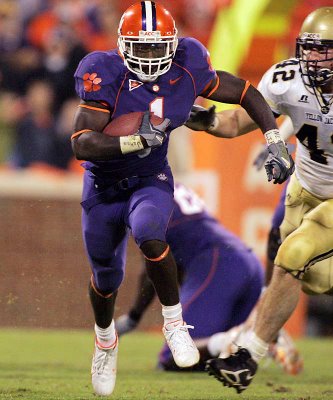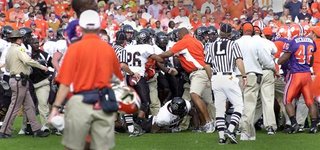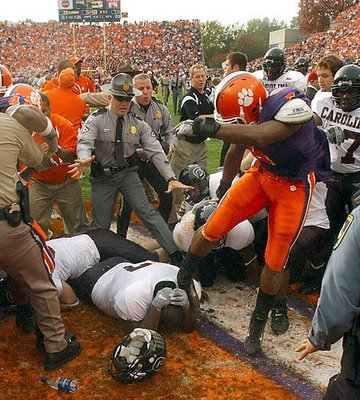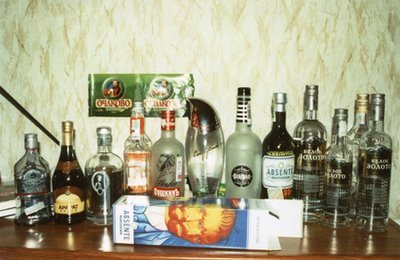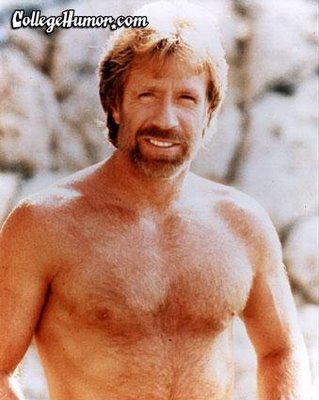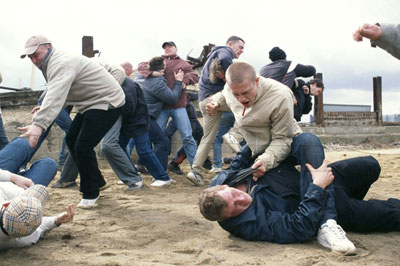When I took over a certain venerable student organization at Clemson, a good friend of mine gave me an important book. Good to Great by Jim Collins is an important analysis of what makes great companies excel and why some companies never reach the top of the mountain. The business principals exuded in the book can be applied to anything; a small company, a fraternity or sorority, even a football team. While some Clemson fans take a fascist view of fandom, “Real fans don’t question their coaches,” as one of the faithful stated, others are openly questioning Bowden’s ability to lead Clemson to an ACC title and beyond. While the primary question is clearly Bowden’s leadership aptitude, some fans would like to instead question one’s qualifications for even beginning to ponder the coaching ability of Tommy Bowden. Socrates said “the unexamined life is not worth living,” and I think this goes not just for introspection but for honest questioning of authority and political dissent. Simply stated, you and I have the right to question our coaches for the same reasons we should question our government: they ultimately rely on our financial support, if left unchecked they’ll ultimately become corrupt, and it’s just our goddamned God-given right. I don’t have to be a politician to know our politicians are f*cking up and I don’t have to be a coach to know our coaches are f*cking up all the same.
Now that I’ve dispelled the absolutely ignorant notion that “real fans” shouldn’t question their coaches, let’s take a structured look at Bowden and staff and how they stack up using Jim Collins’s Good to Great diagnostic tool. Collins states that building a great organization is a process of four stages consisting of two principles each.
Stage 1: Disciplined People
Level 5 Leadership: Collins states that a Level 5 Leader is “ambitious, foremost for the cause, displaying a paradoxical blend of personal humility and professional will”
Tommy: At the start of his Clemson campaign, Tommy was known for his ambition, certainly not his humility. While I don’t feel a coach needs to necessarily be humble to succeed (See: Spurrier, Steven Orr), and that any lack of humility should be earned through championships, I’d like to see a coach not have to be humbled by nearly being fired for ineptitude like Tommy was in 2003. I can’t say for sure whether Tommy has the professional will to reach greatness, he has stated more than once that he wants to be out of coaching at 60, and at the pace he’s going we’ll have just enough facilities to satisfy him by the time he retires.
First Who… Then What: Get the right people on the bus, the wrong people off, the right people in the right seats, and only then do you figure out where the hell the bus is going.
Tommy: Rich Rodriguez was the right guy, but we couldn’t help but lose him to his alma mater, that’s understandable. Tommy has shuffled through numerous OCs and DCs in his tenure. While I feel Koening is the right guy in the right seat, I think Spence is best getting the Rosa Parks treatment or getting the f*ck off the bus altogether. Currently we have no special teams coach, and considering 2 out of our 4 losses this season can be attributed at least partially to special teams woes, I’d say this is a poor example of personnel management. That’s one big seat that’s sitting empty. I’d also like to see better development of our quarterbacks after the Proctor conundrum. Sure Korn is the second coming, but he’ll still need to hone his skills.
Stage 2: Disciplined Thought
Confront The Brutal Facts: “Retain unwavering faith that you can and will prevail in the end, regardless of the difficulties” and “confront the most brutal facts of your current reality, whatever they might be.”
Tommy: Tommy confronted his current reality and demanded, and got, top notch facilities. He claimed that we couldn’t recruit with the big boys without them. Recent recruiting classes have proven him right in most people’s opinion. I think he’s done well in this facet of leadership, but at the same time how one frames the brutal facts of one’s current reality is important too. This edges into excuse-making territory. All week prior to the USC loss this year we heard sound bites about how our 66% winning percentage versus our rival was bound to begin to even out sometime. True or not, that’s not what a coach needs to be saying prior to a matchup with a big rival. Also, nobody wants to hear the word ‘parity’ thrown around by Bowden as an excuse for losing anymore.
The Hedgehog Concept: “the Hedgehog Concept is an operating model that reflects understanding of three intersecting circles: what you can be the best in the world at, what you are deeply passionate about, and what best drives your economic resource engine.”
Tommy: Without a doubt, winning is what best drives his “economic resource engine.” While maybe he is in the business because he got help from daddy, I’d like to think he has a deep passion for coaching. Clearly he can’t and won’t be best in the world at it. Here we encounter a problem. His best, which to this point has been 8ish wins a season, may just not be good enough.
Stage 3: Disciplined Action
Culture Of Discipline: Described as “disciplined people who engage in disciplined thought and take disciplined action,” an environment where people don’t have jobs; they have responsibilities.
Tommy: Who has the responsibility for special teams? Who is the dedicated QB coach? Wouldn’t halftime adjustments, clock management, and playcalling fall under disciplined actions? Clemson definitely needs a lot of work here.
The Flywheel: There’s no magic bullet to success, no one act to achieve greatness, instead Collins likens the pursuit more to “relentlessly pushing a giant heavy flywheel in one direction” until it finally moves the way you want it.
Tommy: Facilities, recruiting, and winning are the big building blocks to success here. Two are taken care of, and with 8 wins a pop, the flywheel is ever so slowly creaking along. More wins will get it really rolling.
Stage 4: Building Greatness To Last
Clock Building, Not Time Telling: Build an organization to last through future leaders instead of building it all around oneself.
Tommy: Having not exactly reached “greatness,” I don’t feel that this one applies. Also it is a rare occasion that a coach sets up a program to be successful under a series of successors. Building greatness around a single coach is the name of the game.
Preserve The Core And Stimulate Progress: Preserve the barrier between “what we stand for” (which should never change) and “how we do things” (which should never stop changing).
Tommy: I think we know what he stands for: a fairly solid program with competitive facilities that graduates players and recruits kids who generally keep out of trouble. I’d like to see the bar for “what we stand for” set a little higher, i.e. competing for the ACC title yearly. Once Tommy figures out how to do that we can assess whether the ways we achieve that need tweaking.
Summary: Core deficiencies in personnel create a rotten foundation for disciplined thought and action. There’s no one stage where Bowden has excelled. Much like his record, he’s proven to be just above average in what it takes to go from good to great. Next season, I feel, is his make-or-break year. 10 wins or bust, Tommy, no more excuses. The facilities are here, the recruits are here, now the coaching needs to step up and match pace.
